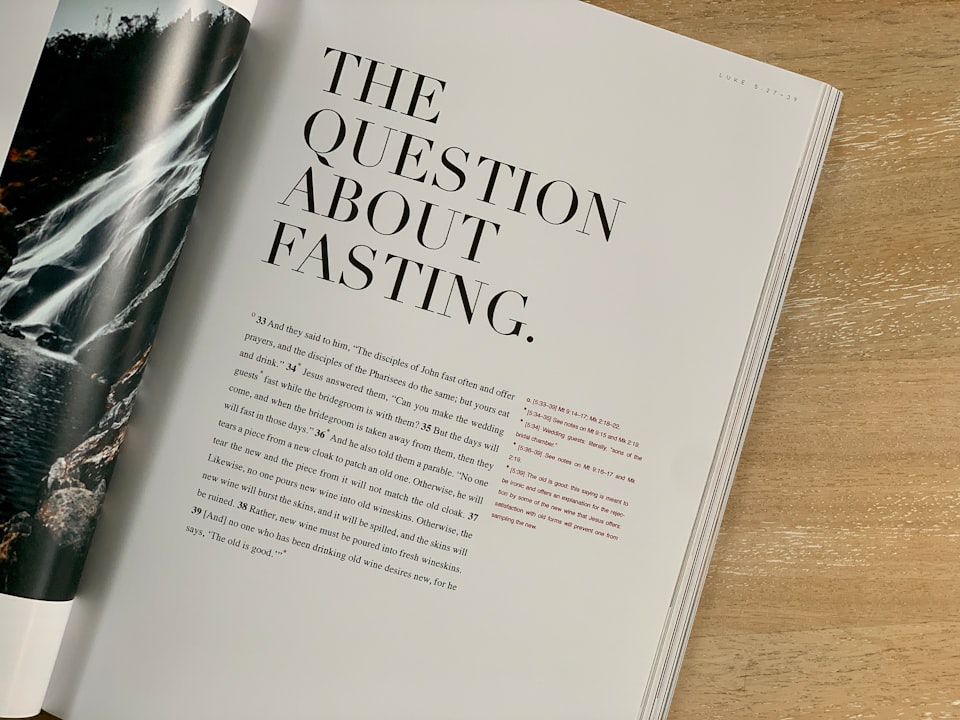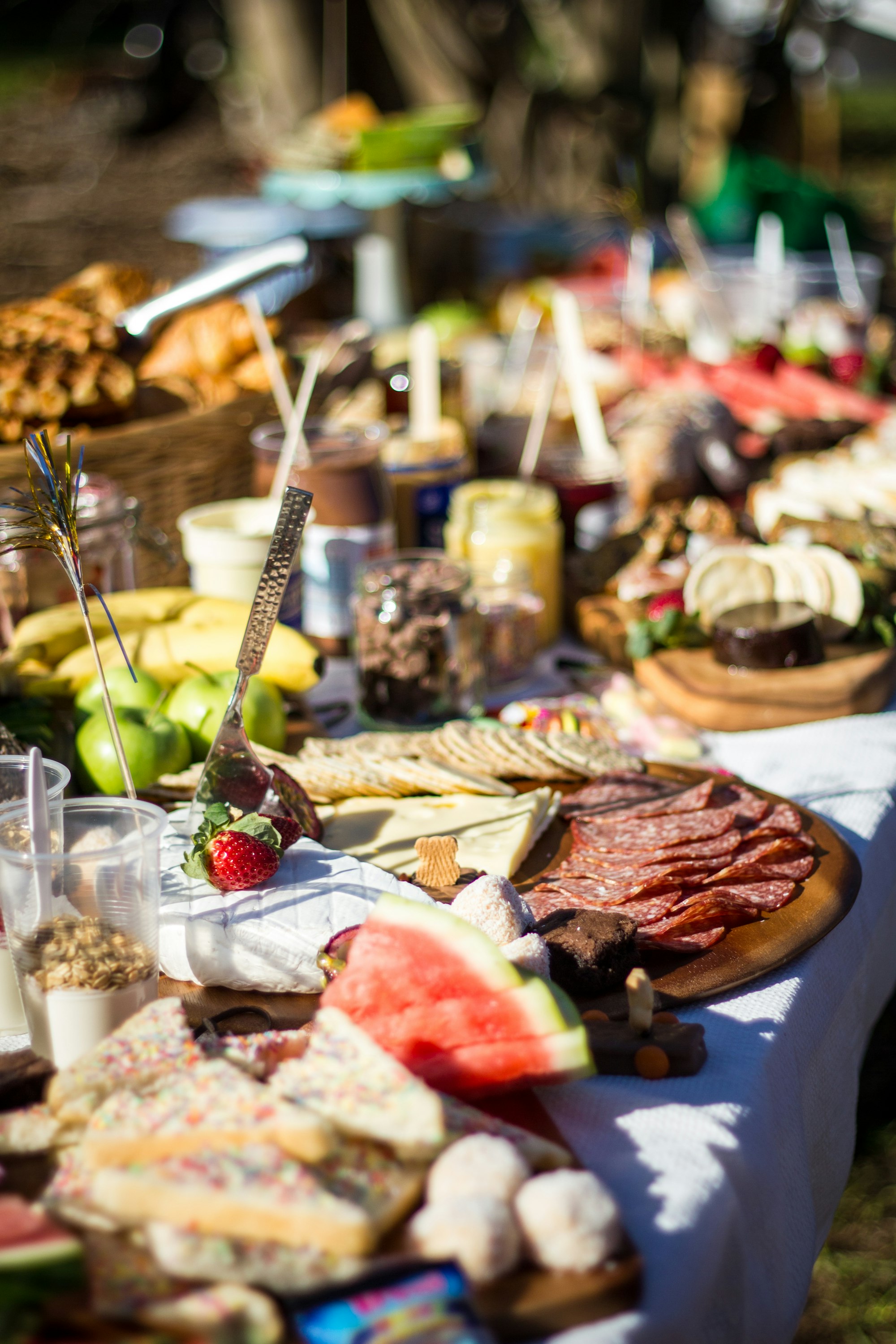that was fast, part 2

This is my second post on fasting. You can read the first one here:

It's part of a larger series on Richard Foster's spectacular book, Celebration of Discipline. You can read the whole series here:

my last post was quite controversial!
Wow! I wasn't expecting such passionate feedback from everyone. As I mentioned in the previous post, fasting is a subject that many people avoid. On the rare occasions that my pastors have mentioned it, it's usually accompanied by a general, "You should do it," without any other details.
In this post, I'll respond to the feedback I got about my last post and then make another post with some rationale on why people fast!
what is hunger?
If we've had three meals a day for our entire life, hunger as we know it is not actual hunger. What we think is hunger around mealtime is actually our intestine saying, "You normally put food in me around this time." What we think is hunger at the end of one day without food is our intestine saying, "I'm done processing food. I'm going to rest now until it's time to eat again." That's it. That's all there is to it.
The quote above is from my last post. On the surface, it's ridiculously and demonstrably wrong. People responded by saying, "The feeling you get when you want food is called hunger! You're trying to change the definition of hunger!" Those people are absolutely right.
When I read The Giver by Lois Lowry, I was particularly struck by the scene where the young protagonist is scolded severely for proclaiming, "I'm starving!" when he was only hungry. People were correct to tell me that the feeling at the end of a day without food is "actual hunger" by the typical definition, and what I called "hunger" is actually starvation.
I was trying to make a point. I wanted to show that we don't need food three times per day, every single day. As part of my rural, west Texas upbringing, my friends and family taught me to make strong distinctions between needs and wants. To this day, I've kept that as one of the central tenets of my life philosophy.
Yes, we all get hungry when we stop eating. After 2-3 days, we stop being hungry. 1-3 weeks after that, we become hungry again. People in communities where fasting is common call the second wave of hunger "true hunger." It's very unlikely that you'll experience any problems after one day of fasting; however, the moment you experience true hunger, you must start eating again or you could become very sick.
is fasting bad?
Great question! I can say that fasting isn't always good. If you're doing it for attention, it's definitely bad. If you're doing it to lose weight, it's extremely bad (and counterproductive. Fasters retain more body fat that people who simply eat low calorie diets. Check out the "Minnesota Starvation Experiments." Note: I'm not talking about intermittent fasting).
If you're generally healthy and eat normally, you're probably fine. If you start feeling sick or think something harmful is happening, all you have to do is eat to make it stop. There's really very little risk.
what is fasting?
I'm sorry I never actually defined fasting. Most of the time, I mean going without food for a predetermined period of time to improve your spiritual life. Be sure to drink plenty of water!
There are other types of fasts! One that I'm learning to love more and more includes eating one or two very small meals per day. It seems that people typically limit it to no more than 500 calories if they want to be legalistic about it. The traditional thing to eat for those meals is plain bread: it's nutritionally balanced and very filling. Eat it only on the first day or two of the fast to keep the worst cravings at bay. One of my friends put it beautifully: "The hunger pangs are a distraction during the first few days of a fast. There's not really a good reason to put yourself through that."
i tried, but i failed
No you didn't. Fasting is meant to benefit you. You have nothing to prove. You're not "testing your strength," or anything like that.
Accepting a gift from God should never, ever be called "failure."
If you fast, but cheat a little and have a snack, you haven't failed. You've just learned more about yourself and your relationship with food (or whatever else you're fasting from). Think about it like this: God's provided you enough food for your entire life. That's why you're still alive today. Daily bread is a gift that many of us never go without! Accepting a gift from God should never, ever be called "failure."
This is why it's not fasting if you give up something that's bad or harmful. Read the next section for more on this idea.
i gave up _____...
You can also fast from things that are not food. However, it's not fasting if you stop doing or consuming something that's bad for you.
For example, if you think speeding on the highway is bad and dangerous, you're not fasting if you stop for a period of time. You're simply doing the right thing, but planning to go right back to doing the bad thing later.
Further, addiction and fasting don't go well together. There's already a lot of shame wrapped up in addiction. There's also a high chance of "failure" (see the previous section for my thoughts on fasting failure).
On the other hand, if you don't think Twitter is bad for you, yet you choose to stop reading Twitter for a period of time, that's a great idea for a fast!
In my next post, I'll talk about reasons to fast and give more examples!
subscribe to get email updates and support my work
Click the link below or the subscribe button at the bottom of the page to support my work and get an email every time I make a new post!


